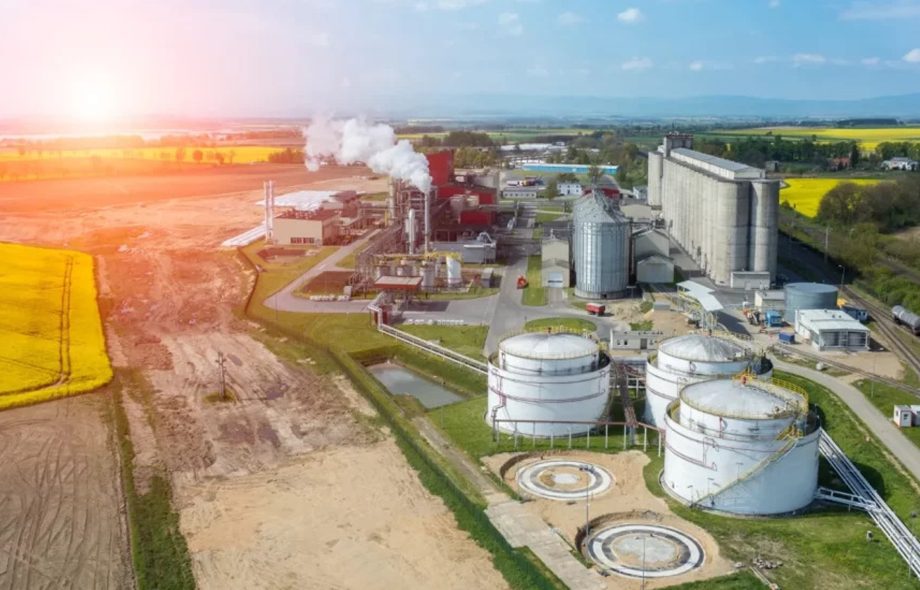In recent years, India has made remarkable progress in its efforts to embrace sustainable energy solutions.
One of the key contributors to this initiative has been the development of ethanol plants. Ethanol, a biofuel produced from biomass like sugarcane, corn, and other organic materials, has emerged as a cleaner and more sustainable alternative to fossil fuels.
With growing concerns about climate change and the need for energy security, ethanol production in India has witnessed substantial growth, especially in cities like Ahmedabad, where industries are taking bold steps to support green energy.
The Importance of Ethanol as a Sustainable Fuel
Ethanol offers several advantages over traditional fossil fuels, making it a vital component of India’s energy landscape.
Unlike petroleum-based fuels, ethanol is derived from renewable resources, which significantly reduces carbon emissions.
Additionally, ethanol burns cleaner, releasing fewer harmful pollutants into the atmosphere, contributing to better air quality.
India, as one of the largest consumers of fossil fuels, has been actively seeking alternatives to reduce its dependency on imported oil.
The government’s push for ethanol blending in petrol has not only addressed the issue of energy security but has also promoted the growth of domestic ethanol production.
Ethanol plants are at the heart of this transition, playing a critical role in producing this eco-friendly fuel that aligns with the country’s sustainability goals.
Growth of Ethanol Plants in India
The Indian government’s Ethanol Blended Petrol (EBP) program, introduced in 2003, has been the primary catalyst for the rise of ethanol plants in the country.
The program initially mandated a 5% ethanol blending in petrol, which was later revised to 10% by 2022. The target is set to increase to 20% by 2025, providing a significant boost to ethanol production and its market potential.
Ethanol plants have mushroomed across India, particularly in regions where sugarcane and other biomass resources are abundant.
States like Maharashtra, Uttar Pradesh, and Gujarat have become major hubs for ethanol production.
Ahmedabad, in Gujarat, has emerged as a key location, driven by its thriving industrial base and access to raw materials required for ethanol production.
The growth of ethanol plants in India can be attributed to several factors:
• Government Policies and Incentives: The Indian government has implemented policies that provide subsidies, tax benefits, and other financial incentives to promote ethanol production. These incentives encourage both public and private sector players to invest in ethanol plants and biofuel technology.
• Favorable Agricultural Conditions: India has vast tracts of arable land suitable for growing crops like sugarcane and maize, which are used as feedstock for ethanol production. Regions like Gujarat, with its strong agricultural base, have a steady supply of raw materials, supporting ethanol plant operations.
• Technological Advancements: Innovations in biofuel technology have made ethanol production more efficient and cost-effective. Ethanol plants are increasingly adopting modern distillation methods and biomass conversion technologies, ensuring higher yields while minimizing waste.
• Environmental and Economic Benefits: Ethanol plant in India contribute to environmental conservation by reducing greenhouse gas emissions. Furthermore, the expansion of ethanol production has provided employment opportunities in rural areas, supporting both local economies and farmers.
Ethanol Production in Ahmedabad: A Local Success Story
Ahmedabad, known for its industrial prowess, has also embraced the ethanol revolution. The city’s proximity to agricultural areas and access to cutting-edge industrial infrastructure makes it an ideal location for ethanol production. Several companies have set up ethanol plants in and around Ahmedabad, capitalizing on the government’s push for sustainable fuel.
The development of ethanol plants in Ahmedabad is not only a step toward cleaner energy but also a boon for the local economy.
By providing jobs and contributing to industrial growth, these plants are helping the city take a leadership role in India’s renewable energy movement.
Challenges Facing Ethanol Plants in India
While the growth of ethanol plants in India is commendable, there are several challenges that need to be addressed:
• Supply Chain Management: Ensuring a consistent and adequate supply of biomass for ethanol production can be challenging, especially during periods of agricultural volatility. Sugarcane, the primary feedstock for ethanol, is heavily dependent on monsoons, making production susceptible to weather patterns.
• Infrastructure Development: Although ethanol blending is gaining momentum, India still lacks the infrastructure for large-scale ethanol storage and distribution. Ethanol’s higher volatility compared to petrol requires specialized facilities for transportation and storage, necessitating further investment in infrastructure.
• Competition for Resources: Ethanol production competes with other industries for biomass resources, particularly in agriculture. Balancing the demand for biofuels with food security is a delicate challenge, as diverting too much biomass for ethanol can affect food prices and availability.
Conclusion
The rise of ethanol plants in India, particularly in cities like Ahmedabad, marks a significant step toward achieving the country’s renewable energy goals.
With favorable government policies, abundant resources, and advances in technology, the ethanol industry is poised for continued growth.
Ethanol not only helps reduce carbon emissions but also offers a solution to the country’s energy security concerns.
However, addressing the challenges associated with supply chain management, infrastructure development, and resource competition will be key to ensuring the long-term sustainability of the ethanol industry in India.
To learn more about how ethanol plants can benefit your business and support India’s renewable energy mission, consider partnering with Advance Biofuel, a trusted name in biofuel technology.
 :
https://in.pinterest.com/infoadvancebiofuel/
:
https://in.pinterest.com/infoadvancebiofuel/












